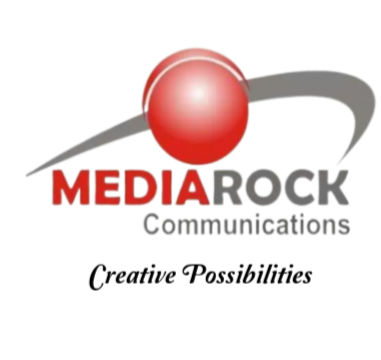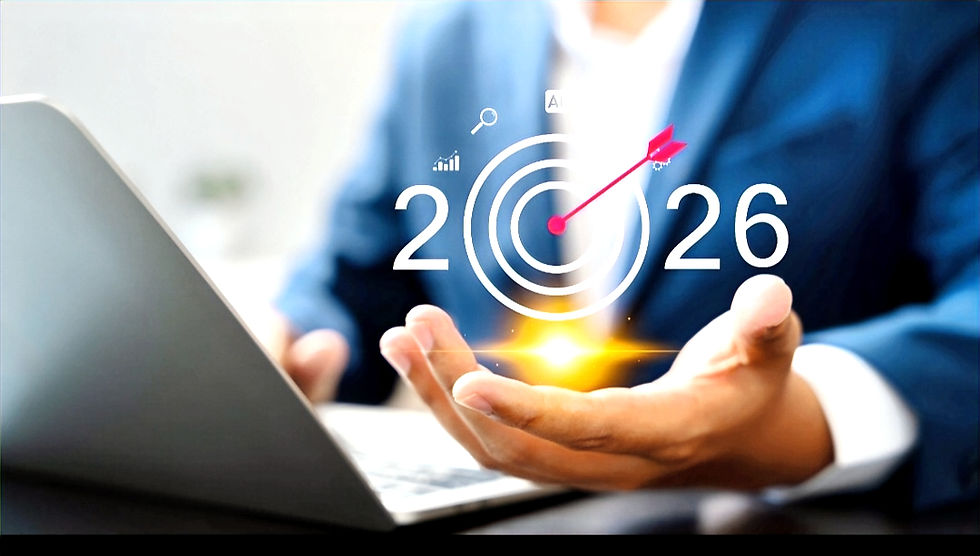Harnessing the Power of Logo Design to Elevate Your Brand Identity
- MediaRock Communications Ltd

- Oct 9, 2025
- 4 min read

Creating a compelling logo is more than just a design task; it’s a crucial decision that can greatly influence brand growth. A logo acts as the visual foundation of a brand, capturing its identity and values in just one image. In this post, we will explore the essential elements of effective logo design, the impact of a well-crafted logo on brand perception, and practical tips for developing a logo that truly connects with your audience.
The Importance of a Strong Logo Design
A logo Design is often the first impression a brand makes on its audience. It communicates the essence of the brand at a glance. A strong logo can evoke emotions, create recognition, and build loyalty among customers.
For example, the Nike swoosh is instantly recognizable, symbolizing movement and athleticism. According to a survey by the Logo Company, 75% of consumers recognize a brand after seeing its logo even once. This recognition can foster trust and credibility, which are essential for brand growth.
Moreover, a well-designed logo enhances brand recall, making it easier for customers to remember the brand across different platforms, whether it’s on a website, in an ad, or on merchandise.
Key Elements of Effective Logo Design
Simplicity
One of the most important aspects of logo design is simplicity. A simple logo is easier to recognize and versatile. It should be identifiable whether seen on a business card or a billboard.
For example, the Apple logo is a simple apple silhouette that is both iconic and memorable. In comparison, a cluttered logo can confuse potential customers and weaken your brand message. Focus on clean and straightforward designs for greater memorability.
Relevance
A logo should be directly tied to the brand it represents. It should reflect the brand's mission and resonate with its target audience. For instance, the logo for a tech startup may have sleek lines and modern fonts, while a children’s entertainment brand might use bright colors and playful fonts.
Understanding your audience is key. Data from a study by 99designs revealed that 39% of consumers will choose a brand based on its logo alone. This emphasizes the need for a logo that connects with the audience's preferences and expectations.
Versatility
A powerful logo must work across various mediums and applications. It should look just as appealing in color as it does in black and white, and it should remain clear when scaled to different sizes.
For instance, the FedEx logo is effective in both small and large formats as well as on various backgrounds, ensuring a consistent brand presence across all platforms. This versatility helps maintain brand integrity.
Timelessness
While design trends can be tempting, a logo should be timeless. A trendy logo may become outdated quickly, leading to frequent redesigns that can confuse customers.
Coca-Cola's classic logo, for example, has remained relatively unchanged for over a century. A timeless logo can represent your brand effectively for years, supporting sustainable brand growth.
The Impact of a Well-Crafted Logo on Brand Perception
An effective logo significantly influences how a brand is perceived. A polished logo can create a sense of professionalism and credibility, which are crucial for attracting and keeping customers.
Research conducted by the University of Loyola found that colors in branding can increase customers' brand recognition by up to 80%. A logo using warm colors can evoke feelings of comfort, while strong colors may express energy and excitement. This emotional connection can enhance brand loyalty.
Real-Life Examples
McDonald’s Golden Arches: The bright yellow color evokes feelings of happiness and is consistently recognized worldwide. About 90% of people can recall the McDonald's logo.
Starbucks' Siren: The green color and design elements convey a sense of calm and relaxation, aligning perfectly with their coffeehouse atmosphere. The logo’s circular shape gives a feeling of unity.
Practical Tips for Creating a Powerful Logo
Conduct Thorough Research
Before beginning the design process, research your industry, competitors, and target audience. Understanding the landscape helps identify what works effectively. A comprehensive analysis contributes to creating a logo that stands out in a crowded market.
Brainstorm and Sketch Ideas
Begin by brainstorming ideas and sketching concepts. Explore various styles, shapes, and colors. This phase is all about creativity and experimentation—think beyond conventional limits.
Seek Feedback
Once you have a few design concepts, gather feedback from trusted sources, such as colleagues, friends, or potential customers. Constructive criticism offers valuable insights to help refine your designs.
Hire a Professional Designer
If design isn’t your strong suit, consider hiring a professional logo designer. A skilled designer can turn your vision into reality and ensure that the final product meets essential design criteria.
Test the Logo
Before finalizing your logo, test it in different applications. Assess how it appears on various backgrounds, in different sizes, and across multiple platforms. This phase helps identify potential issues and allows you to make necessary adjustments.
Elevating Your Brand through Design
Creating a powerful logo is a crucial step in revealing your brand's true potential. An effective logo can enhance brand recognition, build customer loyalty, and drive overall brand growth. By focusing on simplicity, relevance, versatility, and timelessness, you can develop a logo that resonates deeply with your target audience.
Investing time and resources into logo design is an investment in your brand's future. Remember that your logo is more than just a visual; it is the face of your brand and a key driver of your success.
With the right approach, your logo can become a significant asset that elevates your brand to new heights.









Comments